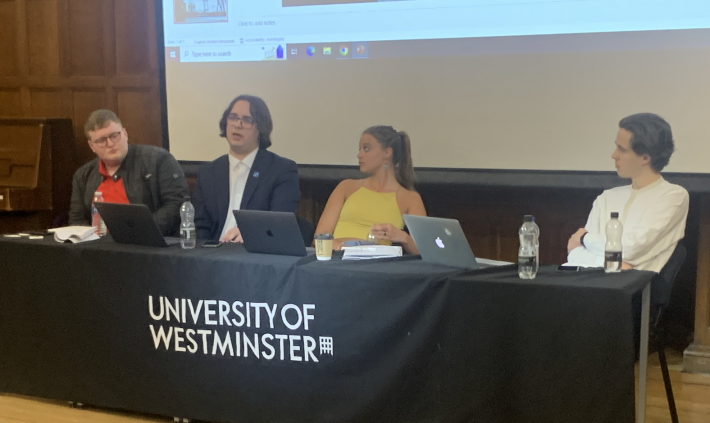That question was posited during day two of the Democratic Education Network’s (DEN) conference, in tandem with the University of Westminster and other academics across different platforms. Although the first day was focused on racism, from highlighting the voice of black women in the workforce to Islamophobia as a form of racism, every single presentation and panel were fascinating.
On day two, however, the students of DEN and the University of Westminster could present their work and findings. Although the topics were diverse, ranging from conversations on the deaths within the mental health division of state-run facilities to whether Thatcherism benefited the UK. Every single student was well-versed and educated in their chosen topics.
I had the opportunity to present my work on Guantanamo Bay and the Rendition, Detention and Interrogation initiative that has taken up a significant part of this past academic year. It struck my attention during the first semester in one of my modules, Geopolitics, where I wrote an essay on the collaboration of the US and UK in wartime, the influences of colonial times on the abuses, and a briefing on Guantanamo Bay. It was a seeming catalyst between home and my studies, as growing up, my father’s co-workers had been the appointed representation for some of the prisoners at JTF-GTMO, and I had heard about it repetitively.
DEN creates a space where students can explore their interests, and because of that, I presented this topic. There is a safety and genuine inclusion that allows for freedom and creativity, and during university, that is incredibly important. College and high school, or whatever form of education you had previously, was a space that encouraged more creativity, as you were not sequestered into a degree. However, DEN is precisely that. You can be your human, meet other curious individuals and find who you are. This conference helped the students and academics grow in numerous ways, from presenting in front of peers and strangers to networking and making new connections; opportunities like this are a lot harder to come by, and when you find something like this, take the leap, write your article, review another’s, because who knows, chances are you might see something incredibly interesting and write about it down the line.
Madeline Briscoe, University of Westminster
